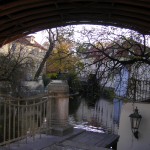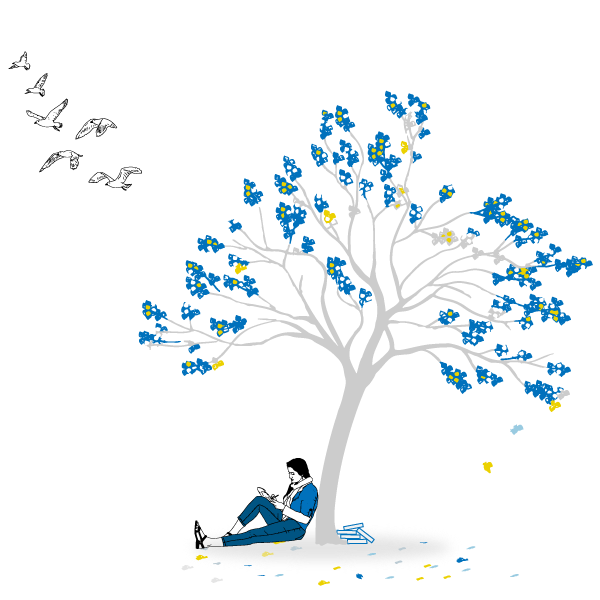Still Sundays
March 13th.
“Who Owns Kafka?” Neither artists nor their supporters can circumvent certain questions. Courage requires much more than strength.
If you would like to know what Still Sundays is about, please take a quick gander here and just read the third paragraph. Thanks.
~~~~~~~~~~~~~~~~~~~~~~~~~~~~~~~~~~
Time changed today. In this part of the hemisphere we have ‘sprung forward’, adjusted our clocks “one hour ahead.” We have “lost” an hour to stretch the day longer. What does it matter? Nights are always long. I have never felt the gain or loss of this time adjustment.
Reports estimate that the 8.9-magnitude quake in Japan on Friday shifted the planet on its axis by nearly 4 inches (10 centimeters). What’s 4 inches to a galaxy?
I learned of some sad news, an earthquake of a different kind. A woman my family knows who was about to have a baby next month had a stillborn instead. The baby was premature and as it had already been detected the baby had three holes in his heart. 4 inches or not, the loss is a galaxy sized void to that mother. How she endures this influences her marriage and even relationships with possible future children.
~~~~~~~~~~~~~~~~~~~~~~~~~~~~~~~~~~
I “tweeted” Franz Kafka’s words, “Writing is a form of prayer.” I had stumbled upon these words in a notebook the night before. They were timely given the earthquake took place the following day. However, I didn’t write that day. At all. Instead I went on an extensive prolonged walk on Friday.
The night before New York City was drenched in a torrential downpour. My apartment was a tin box being rocked by pellets. I missed how I used to like the sound of such savage rain. Maybe I will welcome ferocious downpours once it is summer.
While I was walking on Friday I cut through Central Park to take note that it wasn’t even drizzling any longer. In fact, it was partly sunny and rather calm. Almost spring. Nature had swiftly moved forward. Why is that we hold on long after a moment has gone? Here I am, of all things I can write, I just showcased my attachment to how loud the rain storm was Thursday night. Sometimes stillness is a mirage.
I know when I randomly detect Kafka in my peripheral attention it is to be followed by a string of Kafka related incidents. Friday night someone asked me how I felt about Kafka given he was Jewish? I was embarrassed; I didn’t understand the question. I suppose this person asked because you can’t have a more “Muslim” last name than mine regardless of my views on religion or Islam. Why not just ask me that? Why drag Kafka into this?
I don’t think it is as simple as the infamous saying goes: “the claws” of Prague don’t leave one alone after a single visit to Prague. Franz Kafka in a letter to Oskar Pollak states,”Prague doesn’t let go. Either of us. This old crone has claws. One has to yield or else.”
I think Kafka had claws too whether he knew or not. I think he didn’t want us to let go of him as much as he did. What does he want us to hold onto?
Saturday night @NOVALanguages on Twitter shared: “Judith Butler argues that Kafka had no first language” with a link to an article.
I read the article late into last night. Who Owns Kafka?
I can recall when I first read Franz Kafka, a high school memory. I can’t recall thinking of him as a “Jew” or writing in “German” or being “Czech.” I didn’t even know where Prague was; I was in Kansas. Maybe my teacher wasn’t good. Maybe she was great and I owe her the most credit compared to all my other teachers because she successfully made Kafka accessible to a bunch of high school brats who could care less about a vermin for we all felt like vermins. Maybe I disappoint Kafka, he would have wanted me to know of his work as a Jewish author? Maybe I make him proud that I don’t view him as such.
I share the following encapsulating excerpt by Judith Butler, author of the aforementioned article, given the article is rather long for most people’s desired reading time:
Kafka could not have anticipated how limitlessly parasitic the forces of nationalism and profit would be, even as he knew those spectral forces were waiting. So in the act of dying, Kafka writes that he wants the work destroyed after his death. Is this to say that the writing is tied to his living, and that with his own demise, so too should come the demise of his work? As I die, so too should my work cease to exist. A fantasy, to be sure, that it will not outlive him, something that he finds too painful.
It reminds me of the parable ‘The Cares of a Family Man’, which claimed the attention of Adorno for its ‘salvational’ promise. There is Odradek, some creature, a spool, a star, whose laugh sounds like the rustling of leaves, hovering in or beneath or near the stairwell of a house. Perhaps he is a son, or the remnant of a son; in any case, he is part object and part echo of a human presence. It is only at the end of the parable that it seems the rigorously neutral voice who describes this Odradek has a generational relation to him. This Odradek does not quite live in time, since he is described as falling down the steps perpetually, that is, in perpetuity. Thus the narrator who seems to be in the position of a father remarks: ‘It almost pains me to think that he might outlive me.’
Can we read this as an allegory not just for Kafka in his father’s house, but for Kafka’s writing, the rustling pages, the ways in which Kafka himself became part human and part object, without progeny, or rather with a literary progeny he found nearly too painful to imagine surviving him? The great value of Odradek for Adorno was that he was absolutely useless in a capitalist world that sought to instrumentalise all objects for its gain. It was however not just the spectres of technology that would eagerly feed on Kafka’s work, but those forms of profit-making that exploit even the most anti-instrumental forms of art, and those forms of nationalism that seek to appropriate even the modes of writing that most rigorously resist them. An irony then, to be sure, that Kafka’s writings finally became someone else’s stuff, packed into a closet or a vault, transmogrified into exchange value, awaiting their afterlife as an icon of national belonging or, quite simply, as money.
There are no maybes when I say this: I do not wish to live to see the day when any of my writings would be subjected to “for whom did she write?”
Long before I publicly began sharing my work I thoroughly suffocated, with both hands, that scream which no one can ever truly answer: “where are you from?” I have done my work around this question. But the world likes to box and wrap, even illusions.
I choose not to be a fill-in-the-blank of any religious group or nationality or ethnicity. I feel my pride as a human being minced by claiming any definition which allows to put another down to validate my existence based on physical identity chosen for me. I am not qualified (nor do I ever wish to become so) to say a Japanese life lost in an earthquake is any more or less significant or even equal to a loss of a Jewish or Palestinian child’s life due to atrocities inflicted by one group over the other.
Artists can’t circumvent certain questions if they want their work to be a pier. Piers vary in size and complexity from a simple lightweight wooden structure to major structures extended over a mile out to sea. Piers are built for different reasons and serve different purposes. Every artist must decide what those questions are if they are serious about their craft, the questions don’t matter. This is to say every artist must decide what kind of pier his craft is building.
And because every artist must decide what those questions are so too those who claim to support that artist’s work. If art ever had any duty it was to make us conscious of that which is. This is not to say art can’t be dark or it must “enlighten” or be a conforming or non-conforming standard of beauty, but to make us more aware of our choices.
I support and promote Kafka as consciously as possible given all the information that is available to me, including his words in a “tweet” that touched some who may or may not have been Jewish or from Prague but instead from Japan.
~~~~~~~~~~~~~~~~~~~~~~~~~~~~~~~~~~
I attended an intense yoga inversion workshop lead by Marco Rojas Saturday. I did my first hand stand. I also did my first forearm stand. I also held my headstand the longest I have ever held. Just like that, all the weight lifted upside down, vertically aligned to such precision so my skeletal structure felt light as air.
I consider what took place yesterday during Marco Rojas yoga class and then his workshop as the marking of a new epoch in my life.
Courage requires much more than strength.
I was kicking and struggling to flip my legs over, right first but left always afraid, almost near tears of frustration and anger, annoyed at this woman next to me who didn’t even have to be in this workshop given she could very well do all these poses. Marco and his assistants repeatedly reminded us (as any yoga practitioner knows) these poses all tackle fear. Once that is overcome, one can focus on the details like alignment, breathing, lifting, extending, adjusting, given most people who can go upside down are wobbly or can’t stay long or can’t breathe. The point is not to go there but how you do once there. But you have to build enough strength and learn enough balance (can take a few months or years )….only to find out you are… afraid … of falling … or afraid… of something.
When that woman came back down, she said, “I know you may not be as young as I am assuming you to be given how you look, but I do know you are not 68. You don’t have to wait to be 60 to let it go.”
I let go every moment I exhale so I didn’t know what she meant. But her words did have an impact. In the next split-second I lifted up one leg, then the other, and somehow began breathing from my lungs, not my stomach, so as to stay up and hold it all together, as if I was a dancer, born again.
Marco Rojas shared the following quote that I carry this Sunday and many more Sundays to come:
“With courage you will dare to take risks, have the strength to be compassionate, and the wisdom to be humble. Courage is the foundation of integrity.” ~ Keshavan Nair
This Sunday onwards, I can dare to take risks to welcome those who might have integrity and have compassion for all those who don’t.
I wish freedom that courage brings for all; we need it for ourselves so we can offer it to one another.
~~~~~~~~~~~~~~~~~~~~~~~~~~~~~~~~~~
So as not to mislead, I by no means can do a handstand like Marco Rojas or like this man (best video I could find compared to so many misleading ego-charged ones). Not yet. But this is what it is supposed to look like, it is not just a flipping over acrobatic move, but filled with freedom and grace.



I have often thought about the same things and I absolutely adore the way you put it all in words. My favorite part ‘But the world likes to box and wrap, even illusions’. My thoughts about labeling and boxing are exactly the same as yours. And I also agree on the part where you say that you have to have courage to be able to feel compassion towards others. Have you read Erich Fromm? If you haven’t you might enjoy reading some of his books, he writes about that also. Enjoy your Sunday Annie and thank you so much for this inspiring Still Sundays.
Dear annika,
Many thanks for such lovely words. I appreciate your being able to relate. Yes, I have read Fromm but many moons ago. I think I will pick him up again. Thanks for directing me back to it.
Gratitude for your support.
~a.
Oh Annie – even though you did not write this for me, I feel as if you did. I adore the pictures that you paint with words. Once again this writing will be something that I read and reread and I thank you. So many random and seeemingly unconnected memories drifted in and out of my being while reading your words with my mind settling on the day my mama sat in a lawn chair by the burning barrel tossing papers upon papers of her writings into it. I didn’t understand it at the time, now I weep.
Thank you Annie.
…Ellyn….
Dear Ellyn, thank you for stopping by and for sharing this about your mother. For reasons that are beyond me it helps me understand what Kafka felt even more and to illuminate why I felt challenged by another when they said, “Was I afraid to go here and write this?”. I am grateful for your support and for sharing the memories which actually help me with mine too.
Sincerely,
~a.
I look forward to your Sunday thoughts, with their intriguing provocations & careful consideration. #WarmCornBread
#warmcornbread is indeed best when shared. i thank you for sharing in my thoughts…
Amazing choice of words…i believe writers are without borders and their religion is just being a human being who can connect with people of all religions and all races..as they feel the pain and happiness equally for all ….that is why they are remembered even when wars and crusades are long gone…
“their religion is just being a human being”
wow
thank you.
Penetrating and insightful, Annie. And now I have to dust off my Kafka and re-discover. Thank you!
“Writing is a form of prayer.”
stopped by these words…
so much that we say with words are just that..
I love the journey you take me on… I love the way I get a glimpse of things I have not thought of before…of sharing similarities.
with a prayer for all those who are in a state of loss right now…
may our prayers be answered
i welcome your warm & generous words…. immense gratitude for having the courage to stop by…given one never knows what resides in stillness…
~a.
“Writing is a form of prayer.” Don’t know how I feel about this yet. I may need to digest it for a few more years. Until then, who am I to disagree? I rather despise Kafka, actually, and I don’t understand his appeal. But, as always, my heart was touched by these pieces of you.
Kafka moves me, though reading him through your eyes, moved me more. As many, I have struggled to pull myself away from the epic sorrow in Japan. I missed your Kafka tweet until reading it here, but you are right on the mark.
I too am one who has grown weary of the need to label each other. It seems the only reason people feel so compelled, is to be able to focus the correct type of hate. (What’s your political party? Oh, you guys suck. Were the good guys, not you. I don’t care about your facts, you are a Nazi.) It has become so very tired. Does a party, god, or country matter when the world watches an old man being rescued from debris 15 miles out to sea? (His wife died.)
The tears are the same.
As for your successful head stand, I applaud your triumph. In an increasingly upside down world, you are better prepared now.
Keep writing. We need your perspective.